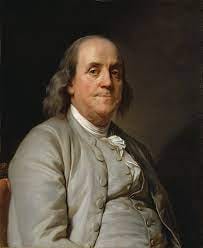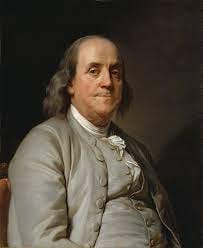The Virtuous Prosecutor
We entrust federal prosecutors with significant discretion. The character of those who exercise that discretion is of utmost importance.
Justice Briefs is a weekly newsletter devoted to federal criminal prosecution. The federal government’s evolution over the last 230 years has given federal prosecutors significant discretion. Few realize it exists and even fewer know how it is used. Justice Briefs aims to make federal prosecutions and prosecutors more accessible to the general public. Please help me in this endeavor by subscribing and sharing with others.
Justice in Brief
*In the Southern District of New York, the former President of Honduras was convicted as part of a large drug conspiracy that brought tons of cocaine into the United States from Honduras between 2004 and 2022. The defendant used his position as President of Honduras to remove competition and centralize his drug operation while promoting anti-narcotic policies in his nation.
*In the District of New Mexico several people were sentenced to offenses ranging from kidnapping to material support of terrorism. The group sought to bring an end to corrupt government agencies in the United States. As part of their plot, they kidnapped a three-year old child and used the child as a prop to support their plan.
*In the Northern District of New York, a company and its owner entered guilty pleas to introducing adulterated food into interstate commerce. The company’s plant repeatedly tested positive for listeria which was then introduced into the products it sold, forcing a recall.
Identifying Virtuous Prosecutors
While conducting some research in recent weeks, I came across an article by the director of Georgetown University’s Criminal Defense Clinic, Abbe Smith. She stated that she does not like prosecutors much. She said this not only as someone who has spent a lifetime defending indigent clients but as someone who has rarely seen virtuous traits in prosecutors. Smith’s essay identified reasonableness, restraint, humility, compassion, and a sense of proportion and perspective as virtuous traits. This connected in my mind to the book I am currently reading. The director of the National Constitution Center, Jeffrey Rosen, recently published his book, The Pursuit of Happiness: How Classical Writers on Virtue Inspired the Lives of the Founders and Defined America. Rosen identifies 12 virtuous traits that those who founded the United States (and participated in selecting the first federal prosecutors!) sought to cultivate. They include: order, temperance, humility, frugality, sincerity, resolution, moderation, tranquility, cleanliness, justice, and silence. The next several issues will examine how federal prosecutors—and prosecutors more generally—could implement these traits in their decision-making and what that would look like.
In his first chapter, Rosen discusses Ben Franklin’s list of virtues. Franklin, according to Rosen, endeavored to live these traits daily. Franklin would focus on each one, attempting to improve himself. In his notes, he defined each virtue. Franklin associated temperance with food and drink. One should not have too much. Silence entailed speaking only when it benefitted oneself or others and avoiding unimportant conversations. Order meant giving each part of one’s business to have its time. Franklin wanted to live with resolve, meaning that he would do what he said he would do. He also wanted to live frugally meaning that his only expenses were to do good for himself or others and not waste anything. Like being frugal, Franklin wanted to be industrious. To Franklin, this meant not wasting time doing uncessary things. People also had to be sincere. This meant thinking “innocently and justly,” not using hurtful deceit, and ensuring speech matched. LIke he asserted with food and drink, Franklin sought moderation which he interpreted to mean avoiding extremes and not resenting injuries. Cleanliness included caring for one’s body, clothes and residence. Tranquility meant not being disturbed about unimportant things. Unlike the other virtues, Franklin did not define humility. Instead, he used two examples: Jesus and Socrates. According to Rosen, Franklin saw them as inspiring models. Finally, Franklin included justice. This, of course, is what prosecutors are supposed to do and it is difficult to define. Franklin did so, however, identifying it as “Wrong[ing] none by doing injuries.”
According to Rosen pursuing these virtues brought happiness. This, Rosen says, is what Thomas Jefferson meant in the Declaration of Independence by the “pursuit of happiness.” This was not just an individual objective though. Those in public service were to pursue these virtues for the government at-large. These were public virtues.
As public officials, then, prosecutors should strive for these virtues in their decision-making. How might they do this? What would it look like?
As an initial matter, not all of the virtues obviously apply. Temperance and cleanliness, at least on their face, do not neatly fit with prosecutorial decisions. By toying with the meanings a bit, however, we can apply them. Temperance could refer to a measured or balanced decision. In all criminal cases, there is an emotional component. The offense harms people or society in some way. There is a desire for retribution. Temperance could be seen as resisting that urge to respond emotionally to the offense and allowing a more reasoned response. Cleanliness could be seen in two ways. First, the government’s representatives should maintain a clean appearance when in court. They should appear professional. Second, the case should be clean. This means that there are no loose ends, avenues left uninvestigated, or questions about the case’s legitimacy.
The remaining virtues fit more easily into prosecutorial decisions. Silence has multiple applications. Prosecutors should listen more that speak. Their work should speak for itself. They should also refrain from public expressions about the case unless done to prevent additional harm. With order, everything should have its time and place. Cases should proceed in an orderly fashion. Decisions should not be unnecessarily delayed. Prosecutors should also act frugally. There are only so many resources available. These include time and money. Prosecutors should not waste those resources by initiating unimportant and dubious cases. This applies equally to industry. Prosecutors should not waste their own time in the course of making decisions. They also need to be sincere. While all attorneys have a duty of candor to the court, prosecutors must be more so. If they say they will do something at a certain time, they must be sure it is done. As Franklin noted, this included their thinking. Prosecutors should be plot how to subvert or shade the truth of the matter. Moderation is similar to temperance yet it can be applied differently. Prosecutors should not emphasize one charge or one type of case over another. Instead, they should pursue balance between the different offense categories. Tranquil is not a word often associated with criminal prosecution. Yet, by focusing on the bigger picture, the other virtues, and by not focusing on unimportant matters, prosecutors can make their lives more tranquil. Prosecutors should also possess humility. While they must have confidence in their case, they must not assume they are always correct. They must keep an open mind, listen to opposing views, and be willing to admit mistakes. Finally, prosecutors must be just. To use Franklin’s conception of not doing injury, prosecutors must be thorough and certain of their case. Their decisions should not cause harm to those not deserving of it.
By acting in these ways, prosecutors can better assist the government in advancing public happiness. This should be their goal.
I hope you enjoyed this issue and that it made you stop and think. I would love to hear any comments, questions, concerns, or criticisms that you have. Leave a comment or send a message! Also, if you enjoyed this or if it challenged your thinking, please subscribe and share with others!





Thank you for the explanation of happiness in relation to the “ pursuit of happiness.” I would hope all prosecutors take this meaning of happiness to heart.